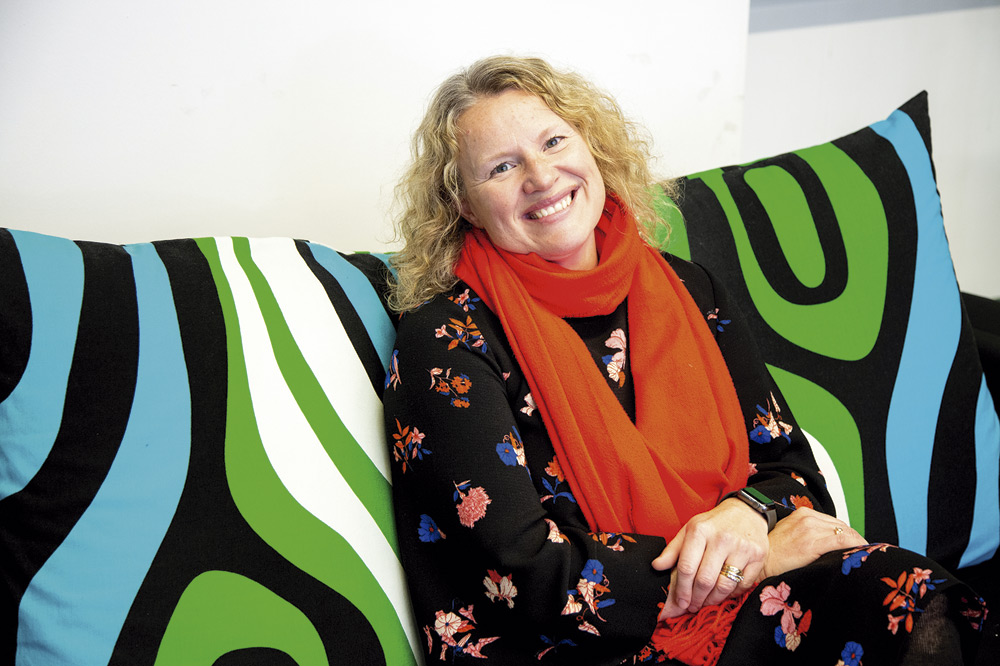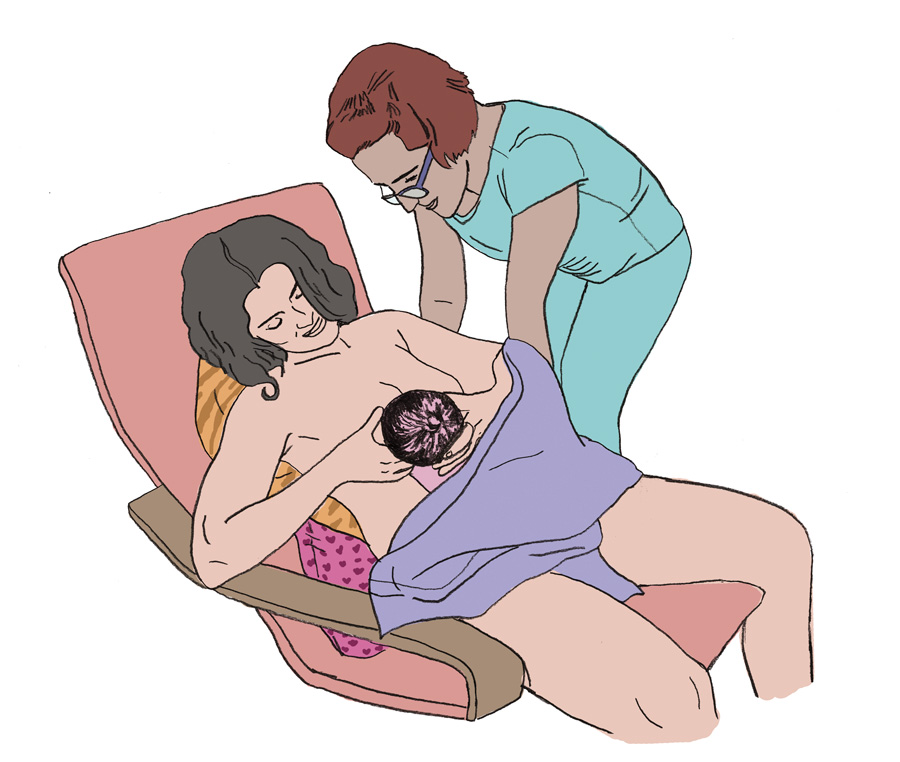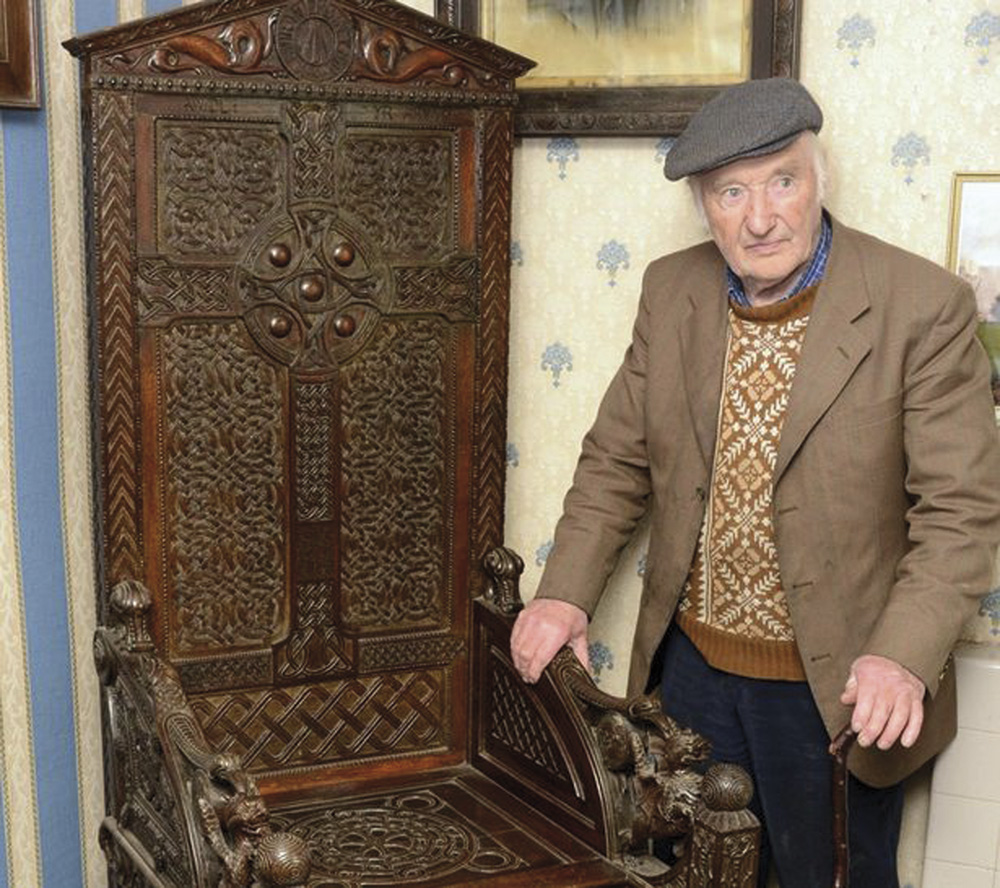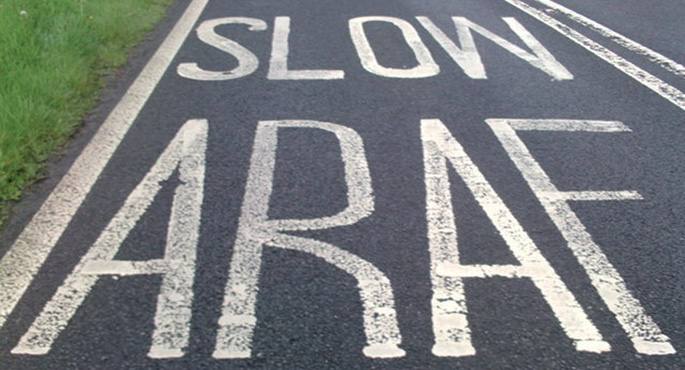"People want to be cared for in their language when they're sick."
- Irish and Welsh have visited Basque Country. They visit the Galdakao-Usansolo hospital, the Faculty of Medicine of the UPV and the UEU. They are learning and implementing ways to care for patients in their language. In this effort the traumatologist and professor Awen Iorwerth are working. He's the first professor at Cardiff University who started teaching Welsh to medical students.

It usually refers to three very important aspects in the use of the first language of the patient. What are they and why are they so important?
All Welsh should be cared for in Welsh, but the critical areas are three: children, people with mental illness and older people. Some children speak a single language. The child, even as a child, can tell the doctor where it hurts, how it feels, but if the child does not speak the same language as the health worker, there are communication problems and the child is unable to speak. My son, up to the age of 4, only worked in Welsh, and at the age of 2, he needed development advice. They taught him the drawings, he had to choose the drawings… These kinds of things cannot be done without using the language of the child. Under these circumstances, the parents will cause the child to be involved in Welsh, but the health professional who works in English in this relationship, even if the parents know the English language, interrupts it. In these situations, parents prefer to do it with Welsh, especially when they are concerned about it. This is a system that seeks the use of Welsh in child health care.
As for mental illnesses, good communication with the patient is essential to diagnose the disease. Talking to him, you should round the diagnosis. In the second language you won't get a diagnosis as fast and correct as you would with your first language.
But there are other situations, even when the diagnosis is well made. If you have a deep depression, you can lose the second language. Some are not able to communicate in the second language. If you don’t understand it, how will you trust it and how will you guide the treatment well, even if the diagnosis is well made?
As for the elderly, it is not uncommon for the second language to disappear and the first language to come back vigorously. The elderly, when they go to the hospital for serious illness, are often confused and the situation becomes even harder if they cannot communicate in the first language. It has happened more than once to me, the elderly have been diagnosed with dementia, and the only thing that happens is that he is disoriented and cannot speak in a second language. That is why it is important that we identify talking wales to alleviate the initial confusion.
"Patients are not used to asking for it to be done in their language, without them being requested by health workers we have to offer them the service"
It is not always that the patient does not know the language, as can happen with children. Even knowing the second language, communication can be weaker, or at least the patient does not feel so secure.
It happens to me. After a long day and when I have to operate at night, I start talking about Welsh in the operating room. I'm tired, I go back to the first language. And I'm not sick, I'm tired. People, when they are sick, want to be cared for in their language or in the language they choose, without having to ask. Even in very basic things, to ask for cleanliness or to take it to the bathroom, he wants it in the first language. You know the words in the second language, but you want to feel comfortable. In these situations you have to start the ‘English clock’, and I know that I am a different person from Welsh. Another way of thinking is to talk about Welsh to your son.
I remember that my mother was dying, that we had lived almost like putting her nose in the private environment of the family, making her in English. He was dying and he also spoke in English.

80% of the diagnosis is made by talking to the patient.
You have to listen to the patient with care. What are you going to do if you don't understand it well, because it's in your language? What are you going to do, because you don't know if you've put it in the second language and it doesn't develop as well as the first one? And 80% is not a matter for Wales or Euskal Herria, and around the world 80% of the diagnosis is achieved by talking to the patient.
He mentioned three areas in which there is a great need, but the patient has the right to take care of him in his language, even if he does well in the second language.
Of course. The patient can insist on receiving health care in the first language, in Galician, but starting to claim the language is a new experience for the patient, they do not want to start in those situations, the patient wants to be with the doctor as soon as possible and will think that if he starts to ask in Galician he will end the line. Patients are not used to asking and we have to offer the service. We therefore have a long way to go in identifying the patients who want to go to the hospital and the workers who know Welsh. Today we don’t know how many welded workers we have, where they are, we don’t know in which specialties we have needs... We don’t know what sick people want to do with Welsh and the workers who know about Welsh, we will never marry the two worlds.
How do you fix them now?
In hospitals, care with Welsh is mandatory, not for family doctors. Family doctors oppose it, they have small businesses and they say they don't have the financial or any other resources to get to the language. At the moment they are not obliged to do so, but I am sure it will come to them. We must make doctors aware that it is an obligation to carry out proper surveillance with Welsh. The Government has to help financially and provide advice, otherwise those small businesses will continue to say that they have to work more, which is one more language. Yes, it is mandatory and we will help you along that road. As things stand now, we are reducing the patient's chances. We are told by doctors who know about Wales, “I know about Welsh!” but we can’t walk, loose grain.
At Cardiff University, you teach doctors. You have been the first professor to use Welsh.
I started in 2015. He had 300 students and four were able to make Welsh. I would teach a lesson through the Welsh. This year there are 24 students who know Welsh. We want doctors to do this in Galician, but before we have to get us to be students from Wales. Less than 20% of our students are from Wales. Students come and leave. So we need more local medical students and more students to learn through the Welsh. We want the students to gain confidence in the use of Welsh, some will learn basic things, others will be able to speak of medicine in Galician, others will do their medical work in this language.
It's about bringing about cultural change in our university. I have 300 students, and when I teach in Galician, almost everyone has to pick up the translator's words through the headset, they don't know it's a Welsh. But then they realize that they have to use the translator because they don’t know the language, that we can speak in another language about medicine, that Welsh is a living language… The answer we have received has been amazing. Speakers from Wales have gained more confidence, as we are teaching in their language. Students of other minority languages have also realised what it means to teach in the minority language. An African girl came up to me and said, “Thank you, now I know my language has value.” The monolinguals have not complained, they say that they are very attentive to the translations, they have not taken it wrong for them to be made with Welsh. The experience is very positive.
You have visited the Basque Country. Are you thinking about organizing something?
We'd like to organize a medical congress in minority languages. Next year, in Wales.
We would like to define and share guidelines on how to conduct medicine in environments where minority languages are spoken. In this sense, we would like to analyze how to surround the professionals of the same community for an adequate health and care service.
For example, in New Zealand there are very few workers from the Polynesian communities in health and medical services. Well, the University of Auckland has developed a program to bring students closer to these communities and then become health workers. In this example, language is not characteristic, but it is taken into account that to meet the needs of a community, professionals from the same community are needed. In our case, Wales and Euskal Herria, that means that language has to be taken into account.
Galesi buruz umorez aritzeko twitter kontuan (Welsh Bollocks) aurkitu dugu esaldia. Hizkuntza bakarra jakiteak dituen “onurak” deskribatu dituzte.
"Ras yr iaith" Galeseraren aldeko Korrika abiatuko da asteazkenean. 25 herri zeharkatuko ditu iparraldetik hegoaldera, eta ostiralean amaituko da. Bigarren edizioa du ekimenak, aurrekoa orain bi urte 2014an egin zuten.
Orain gutxi jakinarazi dute Galesen ere lehen aldiz egingo dutela "Korrika" ekainean, Ras yr Iaith izenpean (hizkuntzaren lasterketa). Ekainaren 20an izango da, ostiralean eta 22 kilometroko ibilbidean bederatzi herritatik igaroko da.
New research has been found in Wales, including young people being asked about the use of Welsh. Half of the young people, between the ages of 16 and 24, say they are able to speak of Galicians fluently. One in three uses the Welsh with their friends.
Carmarthenshire is the... [+]
’Ras yr Iaith’ da galeseraren aldeko lasterketaren izena eta lehen edizio hau behintzat, 3 egunekoa izango da.
"Zergatik txiokatzen dute euskaldunek, galesdunok halako bi?" tituludun artikulua argitaratu du Rhodri ap Dyfrig Aberystwyth Universityko irakasleak bere blogean, euskara darabilten kontuen kopurua eta galesa darabiltenena berdintsuak direla kontuan izanda.
S4C galeserazko telebista kateak 2012ko azaroaren 2an ospatu zituen 30 urte antenan, ETBk baino aste batzuk lehenago.






















